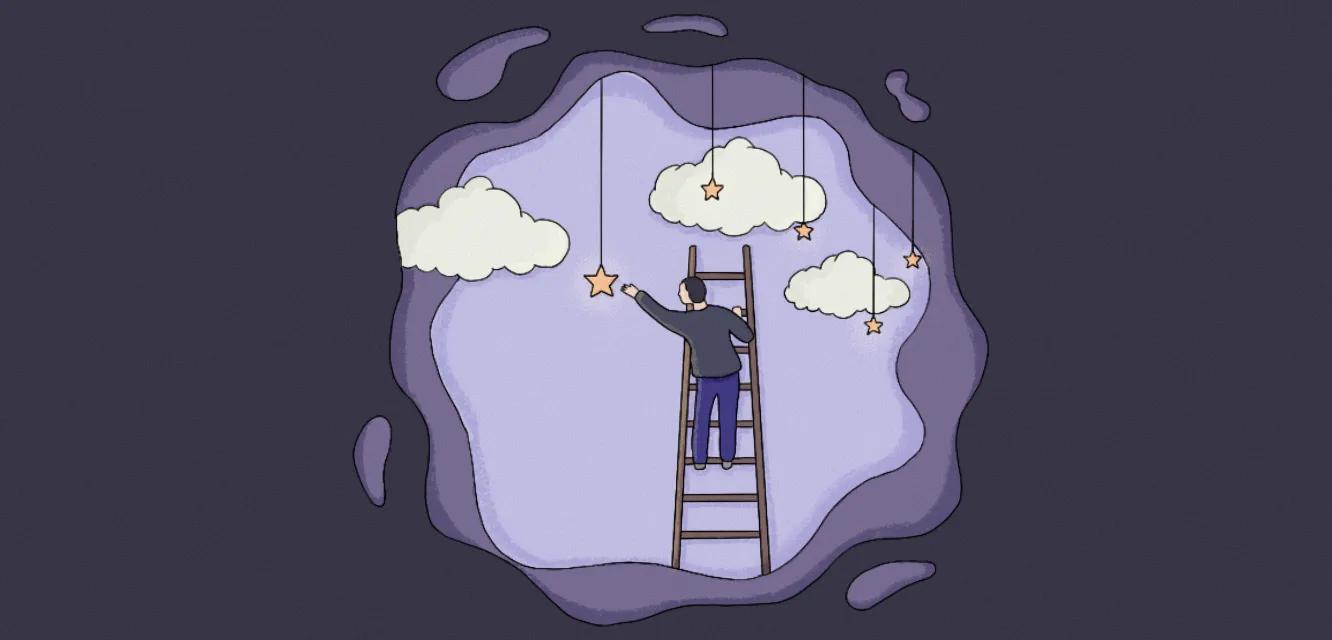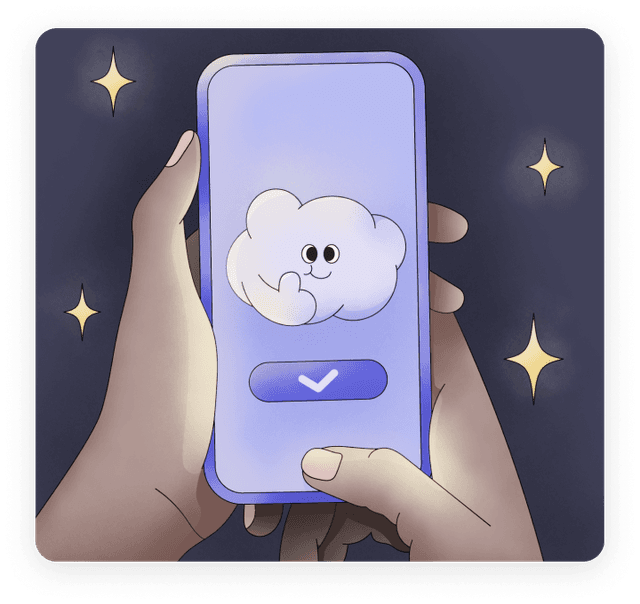
Denys Chumak
19 Jul 2023
Dream Moods Rule Your Nightly Interpretations?
Introduction
Our dream moods can significantly influence how we interpret them. The emotional state we experience during a dream can shape the overall tone, symbols, and themes that appear. Did you know that according to a study, on average, a person spends around six years or more of their life immersed in the realm of dreams? That's a significant amount of time for our minds to create vivid and meaningful experiences!
In this blog, we will delve into how our dream moods impact dream interpretations.
How Dream Moods Influence Dream Interpretation
Here's a closer look at how our dream moods can influence dream interpretation.
1. Emotional Resonance:
Our dream moods often reflect the emotions we are experiencing in our waking lives. For example, if we go to bed feeling anxious or stressed, it's likely that our dreams will carry a similar emotional weight. When interpreting these dreams, it's essential to consider the emotional resonance and how it relates to our waking experiences. Dreams moods can help identify the symbols and themes associated with specific emotions, aiding in understanding their underlying messages.
2. Symbolic Associations:
Dreams communicate through symbols that can carry personal and cultural meanings. Our dream moods can shape our interpretations of these symbols. For instance, if we feel joyful or content during a dream, we may interpret positive symbols, such as flowers or sunshine, as signs of happiness and fulfilment. Conversely, if we feel fearful or anxious, these same symbols might take on a more ominous or threatening meaning. Our emotional state influences the associations we make with dream symbols, which in turn shapes our interpretations.
Also Read: What Does it Mean When You Dream About a Goat?
3. Dream Recall:
Dream moods can impact our ability to recall dreams accurately. If we wake up feeling energized, content, or curious, we are more likely to remember the details of our dreams vividly. On the other hand, if we wake up feeling groggy, upset, or stressed, dream recall may be hazy or fragmented. It's important to take note of our dream moods upon awakening and consider how they might influence our ability to recall and interpret our dreams effectively.
4. Theme Selection:
When we reflect on our dreams, our mood can influence the themes we choose to focus on during interpretation. For example, if we wake up feeling inspired or motivated, we may gravitate towards dreams that contain symbols of personal growth or success. Conversely, if we wake up feeling down or worried, we may be more inclined to focus on dreams that highlight challenges or negative emotions. Our dream mood can guide us towards specific themes that resonate with our emotional state and provide valuable insights into our subconscious desires or concerns.
Also Read: The Top 10 Most Common Dreams and Their Meanings
5. Personal Context:
Dream mood interpretation is highly subjective and deeply influenced by our personal context and experiences. Our dream moods reflect our unique emotional landscapes, which in turn affect how we interpret our dreams. It's important to consider our current life circumstances, relationships, and experiences when interpreting dreams. Dream Moods can serve as a helpful starting point by providing general interpretations, but it's crucial to apply these interpretations within the context of our individual lives.
Conclusion
In summary, our dream moods play a vital role in dream interpretation. They shape the emotional resonance of our dreams, influence the associations we make with dream symbols, affect our dream recall, guide our focus on specific themes, and ultimately contribute to our personal context for interpretation. By recognizing and understanding our dream moods, we can approach dream interpretation with greater self-awareness and uncover the rich meanings hidden within our dreams.
In a world filled with mysterious and symbolic dreams, the DreamApp emerges as a dream moods dictionary, offering a path to understanding our deepest emotions. By harnessing its power to interpret our dream moods, we embark on a transformative journey of self-discovery and personal growth.
Let the DreamApp be your trusted companion as you unlock the hidden meanings within your dreams, empowering you to navigate life with clarity and purpose.
Frequently Asked Questions
What are dream moods?
Dreams moods refer to the emotions, feelings, and overall atmosphere experienced within a dream. They can range from positive and uplifting to negative and distressing, and they often play a significant role in shaping the dreamer's overall experience.
Why do dream moods matter?
Dream moods can provide insight into our subconscious mind and emotions. They may reflect our underlying feelings, fears, desires, or concerns that we may not be fully aware of in our waking life. Understanding dream moods can help us gain a deeper understanding of ourselves and our emotional well-being.
How can I interpret dream moods?
Interpreting dream moods can be subjective since they are highly personal experiences. However, paying attention to the context of the dream, the events occurring within it, and your emotional response can help you interpret the overall mood. Keep a dream journal and look for patterns or recurring moods to gain a better understanding of their significance.
Can dream moods predict the future?
Dream moods, on their own, do not predict the future with any objective accuracy. Dreams are often influenced by our subconscious mind and personal experiences. While some people believe that dreams may contain symbolic messages or insights into future events, there is no scientific evidence to support this claim. It's generally more helpful to interpret dream moods as reflections of your emotional state and personal concerns rather than trying to predict the future.
What are some common dream moods and their meanings?
Dream moods can vary widely, but here are a few examples:
Happiness/Joy: Indicates contentment, fulfilment, or positive experiences in your waking life.
Fear/Anxiety: This may symbolize unresolved fears, stress, or concerns in your waking life.
Confusion: Suggests uncertainty or a lack of clarity in a particular situation.
Sadness/Grief: Reflects emotional healing, loss, or suppressed emotions.
Excitement: Signals anticipation, new opportunities, or positive changes on the horizon.
Did you have an unusual dream with this symbol?
Let's analyze this dream with our expert!
At least five words, please.

Your dreams are completely private
Take control of your dream emotions in the free mobile app



The most recent users' dreams
Go to the user dreams page
Dream App
Free dream interpretations

(1,213)











